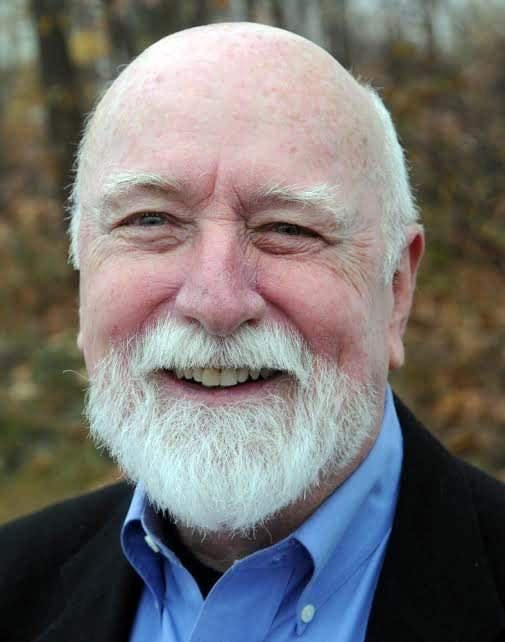The Observer: How climate change will shape the next great turning
- Oops!Something went wrong.Please try again later.
Turning points in world history can happen in an instant (e.g., the bombing of Hiroshima and Nagasaki). But they can happen gradually, too, (e.g., availability of the birth control pill). Whichever way they happen, however, great turnings alter our ways of thinking, change cultures and shift our definitions of reality.
Climate change, which has been building dramatically over the last 75 years, will be the impetus for the next great turning; even if millions of people don’t see that yet. Governmental, corporate and individual responses to the climate crisis will determine what happens to the quality of life on Earth for generations to come.

The International Panel on Climate Change’s (IPCC) recently published assessment of the climate crisis is compelling. “Human activities,” the IPCC says, “principally through emissions of greenhouse gases, have unequivocally caused global warming.” They point out that between 2011 and 2020, the global surface temperature rose 1.1 degrees Celsius above 1850-1900 levels. They also make clear that these trends will continue unless dramatic changes are made.
Another group of prominent scientists, the Anthropocene Working Group (AWG), has proposed that human impact on the environment constitutes a new age in geologic history; succeeding the 11,5000-year-old Holocene epoch around 1950.
Earlier this year, the AWG identified a Canadian lake as a site that documents this new epoch. The sediment in Crawford Lake (Ontario) reveals elevated chemical markers including plutonium from atomic bomb tests, nitrates from the widespread application of chemical fertilizers and carbon particles from the burning of fossil fuels. The sedimentary record offers physical evidence of the degradation of the environment and explains that it is caused by human activity.
The Observer: How to parent now? It was much simpler 50 years ago
In spite of evidence gathered by groups like the AWG, some people remain dismissive. Dissent has appeared in local newspapers and from far-flung corners of the Internet. Some doubters simply do not trust research published by teams of international scientists, regardless of how rigorous their methodology. Others suspect that any report originating with government sources or from international agencies constitutes little more than self-serving propaganda. Still, others hang their doubts on alternative facts and deep-seated conspiracy theories.
Skeptics disregard prima facie evidence as aberrant or merely the product of long-standing natural cycles. This allows them to dismiss data reported by the scientific community and even ignore their own personal experiences.According to some news sources, July 2023 was the hottest month ever recorded — worldwide. Last month for the first time, Phoenix experienced nineteen consecutive days with temperatures above 110 degrees Fahrenheit.
Worldwide temperatures on July 4 averaged 62.9 degrees Fahrenheit, breaking a record set the previous day. And around the world, global water temperatures hit 69.7 degrees Fahrenheit that same day. In Manatee Bay, Florida water temperature was 101.1 degrees Fahrenheit. Trends like these have serious consequences for human health, environmental sustainability, and local economies.
The Observer: Why are people obsessed with fame and celebrity culture?
Growing acceptance of these trends has persuaded most people in this country and around the world that the Earth is reaching a tipping point. The Yale Project on Climate Change Communication (YPCC) has conducted opinion surveys in the U.S. and elsewhere since 2010. This research has enabled them to classify people as 1) alarmed, 2) concerned, 3) cautious, 4) disengaged, 5) doubtful, or 6) dismissive with regard to climate change.
The proportion of U. S. respondents who were classified as “Alarmed” increased from 12% to 26% over the last decade. Together, the “Alarmed” and “Concerned” now constitute a majority (53%) of the U.S. sample. Compared to other countries, however, the United States lags in its awareness. Surveys show most other nations have much higher levels of “Alarm” and “Concern” than we do — Mexico (88%), Portugal (85%), Sri Lanka (84%), Chile (83%) and Brazil (80%) for example.
This is what leads me to think we might be approaching another great turning even if the “Dismissive” segment of the U.S. population has hardly budged at all. It has remained between 10% and 11% from 2010 to 2020.
Still, the opinion data we are now seeing supports the idea that another great turning is in the offing. We are on the cusp of something positive, but only if enough people accept that the dominant way of life we enjoy now is irreparably damaging our world.
My next column will be devoted to how we might achieve this turning.
Ron McAllister is a sociologist and writer who lives in York.
This article originally appeared on Portsmouth Herald: The Observer: How climate change will shape the next great turning
